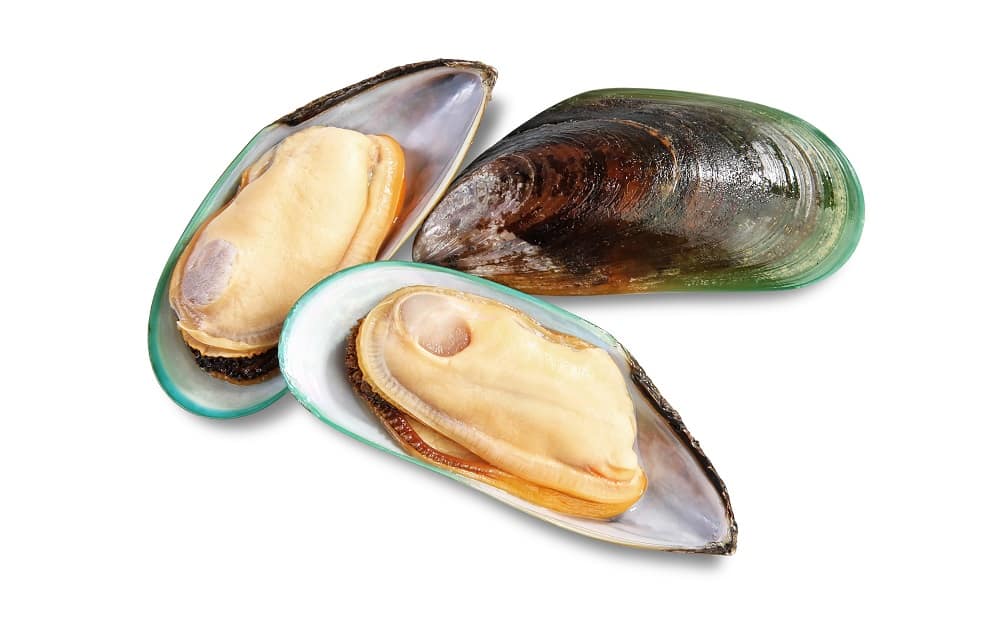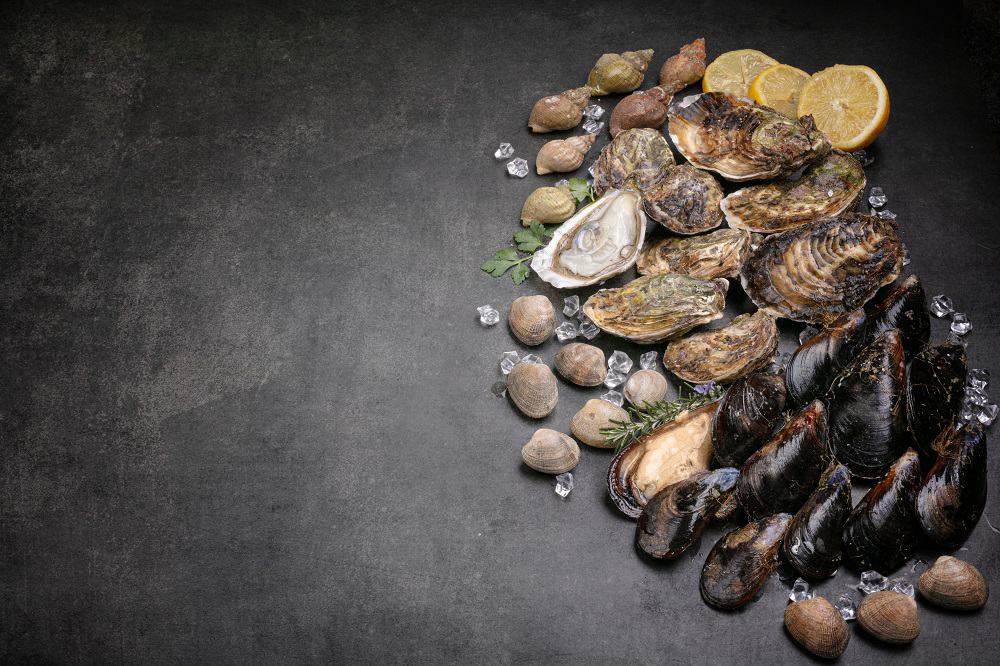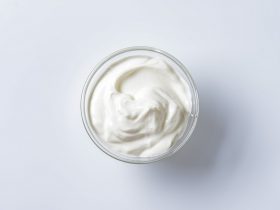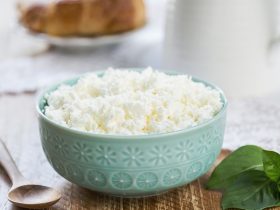Eating seafood during pregnancy is a concern primarily because of their mercury content. They can also be contaminated with disease-causing pathogens that can harm both the pregnant mother and her unborn baby.
Mussels are low in mercury content. They can be safely consumed by pregnant women as long as they are properly cooked until their shells open to avoid any food-borne pathogens. Seafood is an important part of a varied and balanced diet during pregnancy.
Potential Harm from Consumption of Mussels

Food-Borne Pathogens
Bivalve mollusks include clams, mussels, oysters, and scallops. They are known as filter feeders, trapping phytoplankton in their gills (Koutsomanis et al., 2018). They filter a huge amount of water, therefore bioaccumulating a great quantity of microorganisms in their tissues. These organisms can be considered infectious for humans (Zannella et al., 2017).
Potential food-borne parasites of importance include the Crpytosporidium species, Toxoplasma gondii and Echinococcus species. These parasites cause the human diseases cryptosporidiosis, toxoplasmosis, and alveolar and cystic echinococcis, respectively (Koutsoumanis et al., 2018).
Koutsoumanis et al. in 2018 tested the most commonly eaten and farmed species of molluscan shellfish, including common mussels and Mediterranean mussels, among others. Results are positive for the presence of Cryptosporidium. This study emphasized the importance of recognizing the possibility of transmission of protozoa like Cryptosporidium from marine shellfish to humans, with the major concern being the potential of this food to cause human illness and outbreaks.
The same study explained that the process of filter feeding of molluscan shellfish can also result in accumulation of water-borne pathogens like Toxoplasma gondii oocysts. Human consumption of shellfish that is contaminated with Toxoplasma and undercooked can pose significant health risks (Koutsoumanis et al., 2018). In the same manner, Coupe et al. in 2018 reported the presence of Toxoplasma gondii oocysts in samples taken from commercially prepared green lipped mussels.
Maternal toxoplasmosis infection can have serious consequences on fetal development. Transplacental transmission can occur and lead to fetal infection, resulting in neurologic and ocular birth defects. In the United States, often missed risk factors for this infection include eating raw or undercooked oysters, mussels or clams (Davis et al., 2015).
Contamination with Methylmercury
Mercury is known as a cumulative neurotoxin. Human exposure occurs through the diet, particularly from fish and other seafood. Increased levels of exposure to mercury can cause significant neurological and behavioral disorders, such as tremors, memory loss, neuromuscular changes, renal and thyroid disorders, and death (Taylor et al., 2016).
Low levels of mercury have been reported in clams and mussels, while higher levels were found in tuna, sea bass, sea bream, monkfish, hake and octopus. Mercury crosses the placenta and can alter fetal neurodevelopment. Therefore, the European Food Safety Authority Scientific Committee has recommended to limit intake of seafood species with high mercury content in the daily diet of pregnant women (Prieto et al., 2018).
Acute effects of mercury on the developing fetus were brought to attention after the Minamata disaster in Japan in the 1950s, when mercury-containing byproducts of a manufacturing plant were released into the local bay. Pregnant women who consumed contaminated seafood gave birth to babies with high prevalence of neurotoxicity and other abnormalities, such as microcephaly and blindness, as well as mental and physical disabilities (Taylor et al., 2016).
Effects at moderate levels of exposure may be more subtle, and may include adverse effects on neurological function, the cardiovascular system and immune function. These effects of moderate levels of prenatal exposure to mercury have been described in other studies, but findings have been inconsistent (Taylor et al., 2016).
Taylor et al. in 2016 evaluated the effects of mercury on birth outcomes by measuring its levels in the blood of pregnant women in the United Kingdom. They then checked the birth outcomes of these women. Their results showed no significant association between maternal blood mercury level and infant birth weight, head circumference or crown-to-heel length.
Shellfish Toxins

Diarrhetic shellfish poisoning (DSP) is an illness caused by ingestion of shellfish contaminated by toxins. Symptoms include diarrhea, nausea, vomiting and abdominal pain beginning 30 minutes to a few hours after ingestion of contaminated shellfish. Complete recovery ensues within three days (Eberhart et al., 2013).
In the summer of 2011, three people were documented to have suffered from DSP after ingestion of recreationally harvested mussels from the Sequim Bay State Park. This has resulted in intensified monitoring for shellfish toxins in the Washington State. Blue mussels collected a few days after were found to contain significant levels of shellfish toxins (Eberhart et al., 2013).
In addition, over 60 people subsequently suffered from DSP in Canada from July to August 2011. Their illness was traced to the ingestion of Pacific coast mussels. Since then, shellfish contaminated with diarrhetic toxins were deemed hazardous to human health (Eberhart et al., 2013).
Are Mussels Safe During Pregnancy?
According to the National Health Service of the United Kingdom, cooked shellfish, such as mussels, lobster, crab, prawns, scallops and clams, can be safely eaten during pregnancy. These contain low levels of mercury and can be consumed for 2 to 3 servings per week.
To prevent food-borne illnesses, all raw seafood, smoked refrigerated seafood, shellfish with opened shell, and seafood that remains closed after cooking should be avoided. Seafood should be cooked thoroughly until an internal temperature of 165oF (74oC) is achieved.
Shellfish, such as oysters, clams, scallops, mussels and cockles, must be sealed shut before cooking then boiled for 5 to 7 minutes. They should be cooked until the shell opens. Any shell that does not open after cooking should be discarded.
Benefits of Eating Seafood
Seafood is an important source of nutrients, including long chain polyunsaturated fatty acids (PUFA), choline, iodine, selenium, and vitamin D, as well as protein. These are all critically important during pregnancy (Taylor et al., 2016).
The health benefits of seafood intake, which is a major dietary source of the PUFAs docosahexaenoic acid (DHA) and eicosapentaenoic acid (EPA), have been demonstrated among the general population. However, results of studies about the effects and risks of complications from seafood intake in pregnant women have been inconsistent (Mohanty et al., 2016).
In 2016, Taylor et al. compared the birth outcomes in pregnant women who ate seafood with those who did not. Seafood intake during pregnancy was assessed using a food frequency questionnaire. The questionnaire included three items related to seafood – white fish, oily fish and shellfish, including prawns, mussels, cockles and crab.
Results of the study revealed that pregnant women who did not eat seafood were found to have an increased risk of delivering infants with low birth weights. Seafood consumption may have a protective effect on infant birth weight. The authors concluded that intake of seafood during pregnancy should, therefore, be encouraged (Taylor et al., 2016).
Similarly, Mohanty et al. in 2016 investigated the association of eating seafood during pregnancy with the risk of preterm delivery. They found that increased consumption of lean fish, but not fatty fish or shellfish, was associated with higher risk of preterm birth. However, they also mentioned that further studies are needed regarding the mechanisms and possible contributing factors.
Prieto et al. in 2018 made a case-control study investigating the relationship between seafood consumption during pregnancy and the risk of delivering a small for gestational age (SGA) infant. Over 500 pairs of pregnant women from five hospitals in Spain were included in the study. The control group consisted of women who delivered babies with adequate birth weights. The SGA group consisted of women who gave birth to newborns with birth weights below the 10th percentile of infants with the same gestational age.
Seafood intake of at least 29 grams per day during pregnancy, which is equivalent to 2 to 3 servings per week, showed a reduction in the risk of having an SGA newborn, compared to an average seafood intake of less than 8 grams per day. Consumption of shellfish (clams, common cockles and mussels) more than once a week was associated with lower risk of delivering SGA newborns (Prieto et al., 2018).
Final Thoughts
Mussels have low mercury content and are therefore safe for pregnant women to consume. However, due to possible contamination with harmful pathogens and toxins, all shellfish for human consumption should be made sure of their freshness then cooked completely until their shell opens.
Fish that have high mercury content, including shark, swordfish, king mackerel, orange roughy, marlin, bigeye tuna and tilefish, should be avoided throughout pregnancy. To ensure the safety of any dietary modification, pregnant women should always consult their physicians.
References
- https://www.nhs.uk/
- Coupe, A., Howe, L., Burrows, E. A., & Sine, A. (2018). First report of Toxoplasma gondii sporulated oocysts and Giardia duodenalis in commercial green-lipped mussels (Perna canaliculus) in New Zealand. Parasitology Research 117(4). DOI: 10.1007/s00436-018-5832-8
- Davis, S., Anderson, B., Schulkin, J., Jones, K., Eng, J., & Jones, J. (2015). Survey of obstetrician-gynecologists in the United States about toxoplasmosis: 2012 update. Archives of Gynecology and Obstetrics 291(3), 545-555.
- Eberhart, B., Moore, L., Harrington, N., Adams, N., Borchert, J., & Trainer, V. (2013). Screening tests for the rapid detection of diarrhetic shellfish toxins in Washington State. Marine Drugs 11(10), 3718-3734. doi: 10.3390/md11103718
- Koutsoumanis, K., Allende, A., Alvarez-Ordonez, A., Bolton, D., Bover-Cid, S., Chemaly, M., …, & Robertson, L. (2018). Public health risks associated with food-borne parasites. EFSA Journal 16(12), e05495. doi: 10.2903/j.efsa.2018.5495
- Mohanty, A., Siscovick, D., Williams, M., Thompson, M. L., Burbacher, T., & Enquobahrie, D. (2016). Periconceptional seafood intake and pregnancy complications. Public Health Nutrition 19(10), 1795-1803. doi: 10.1017/S136898001500316X
- Prieto, C., Galiano, J. M., Bellido, I., Requena, R., Cavanillas, A., & Rodriguez, M. (2018). Maternal seafood intake and the risk of small for gestational age newborns: A case-control study in Spanish women. BMJ Open 8(8), e020424. doi: 10.1136/bmjopen-2017-020424
- Taylor, C., Golding, J., & Emond, A. (2016). Blood mercury levels and fish consumption in pregnancy: Risks and benefits for birth outcomes in a prospective observational birth cohort. International Journal of Hygiene and Environmental Health 219(6), 513-520. doi: 10.1016/j.ijheh.2016.05.004
- Zannella, C., Mosca, F., Mariani, F., Franci, G., Folliero, V., Galdiero, M., …, & Galdiero, M. (2017). Microbial diseases of bivalve mollusks: Infections, immunology and antimicrobial defense. Marine Drugs 15(6), 182. doi: 10.3390/md15060182




